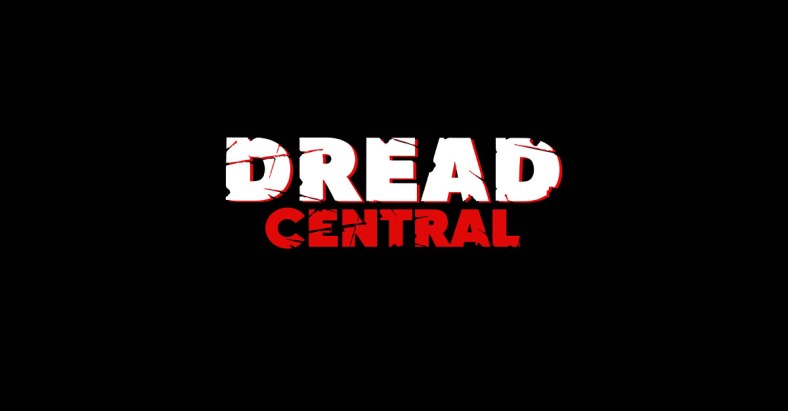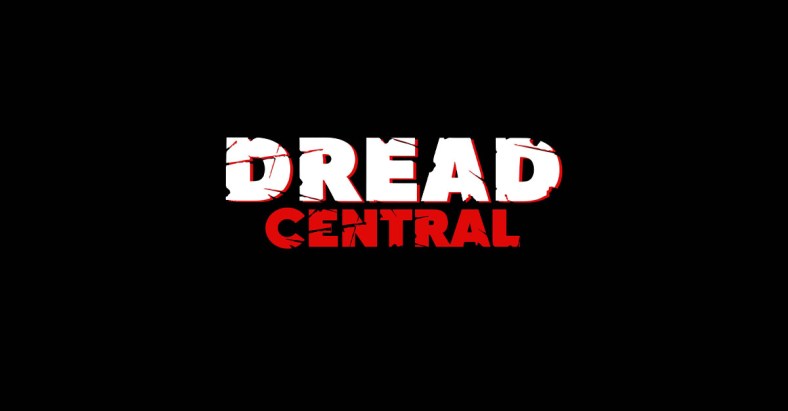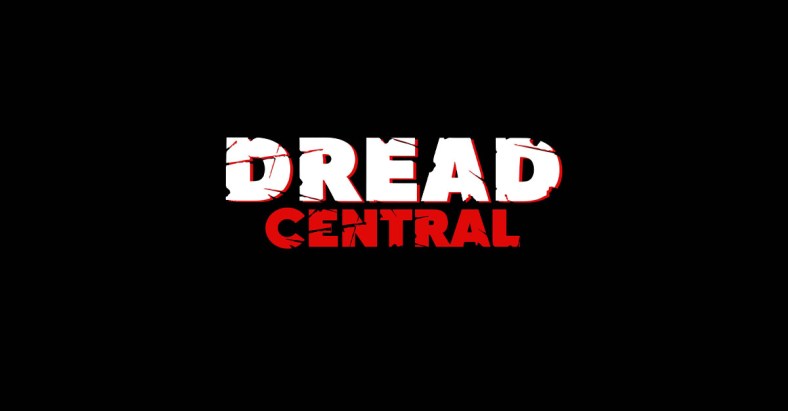Director Joe Lynch Speaks On The Utter Madness That Is Mayhem

We recently had the opportunity of grabbing a little sit-down time with director Joe Lynch, whose latest film, Mayhem will be smashing into workplaces on November 10th, and this office slaughter-fest promises to boost the spirits of the little guy fighting his way up the corporate ladder. Joe was more than gracious enough to discuss a number of topics, and more than anything, this guy is a fan first, director second. Read on and revel in the words of a man who is making movies for the people! ENJOY!

DC: Joe, what can you tell us about the premise of this film?
JL: Mayhem is a loving family film about a dangerous virus called the ID-7 virus that for a temporary amount of time makes people lose their inhibitions, so if you’ve ever been repressed or holding anything in, whether it’s anger or lust or greed or exultation, there’s no tourniquet – nothing’s stopping you from feeling those emotions. It’s like the most bipolar effects of a disease you could possibly have – so what happens if that virus gets loose in a law firm? It’s the same law firm that had just gotten someone cleared for murder who was infected with that same virus – so that’s the very basic premise, and I remember reading this before the script and I was saying “man, this could go anywhere.” There’s something very fun about this much like The Purge was – I mean you think for 24 hours crime is legal – what could happen? In this case I thought what a great setup – I mean who doesn’t want to see a lawyer getting punched in the face, and albeit 280 lawyers! So I tried to think what way could this be done without being too nihilistic and mean, and start feeling bad for them, and when I read the script I thought “I’ve got to see this movie on the big screen!”

DC: This is really one of those movies that is for the little guy in the corporate world that’s at the bottom of the totem pole – do you agree?
JL: Oh absolutely – this is for the guy in the mailroom, baby – this is for all the assistants, all the ladder-climbers, and they can see all the levels of success that are mere feet away, yet it feels like it’s totally unattainable. Society keeps telling us “keep climbing that ladder to be successful – if you want to be president, you’ve got to fucking climb over everyone and do things that you wouldn’t normally want to do.” This is very much a movie for the underdog, and that’s what I was – I read this script while I was in a corporate job, so if it was anyone that related to this script at the time, it was me – it could not have hit me at a better time. Everytime I’ve read a script or have written something in the past, it’s come from a place of want, and as soon as I read this I thought “I need to tell this story because I know what this character’s going through, and I know there are people who are going to feel the exact same way I did when they see this.”
DC: With this being such a balls-to-the-wall movie, was there the frame of thinking when you’re behind the lens to keep everything blueprinted, or did you say to the cast, “fuck it, just go nuts.”
JL: We actually had a pretty strict set of rules when it came to the effects, and what phases people were in – this wasn’t something that was in the script. We had a chart for the actors that showed hour one: you were going to feel this way, and in hour two: you’d be feeling this way, and so on and so forth, and that was incredibly helpful to the actors to help them get a gauge of how to time things out, and how crazy they would be feeling at what time. We didn’t want it to be “well, don’t worry about it – just act crazy.” But when you have actors like Steven (Yeun) and Samara (Weaving), along with Steven Brand and Caroline Chikeze – they knew exactly what I was going for from the beginning, and they were able to track themselves. Steven and Samara were so in sync with each other – Steven is a very proactive actor and he’ll push things forward and present them towards the scene, and that was happening in conversations we had months, days, weeks, hours and minutes before we committed anything to film. Samara is such a reactive actress, and that’s not a bad thing – in fact, it’s a great thing, and it’s a rare thing in this day and age where you get actors who know how to listen in scenes, and especially with the shooting schedule that we had, and it was nice to have people like Steven and Samara who’ve both done TV and know how to shoot 8-9 pages in a day. When Samara was reacting to stuff that Steven was doing in the movie, that was all her – there’s one scene when a character gets their comeuppance, and Samara is in the background laughing her ass off, and in the script there was a brief mention of her giggling, and she took it and just fucking ran with it. So when you take two actors like that with different styles, it was like peanut butter and jelly, and you just want to keep taking a bite out of it.
DC: Watching all those seasons of “The Walking Dead” I always thought that Steven needed that one vehicle to break out, and this was it – he was so insanely good in this film. Was he your first choice right off the bat for your main character?
JL: He wasn’t, only because when we got the money, originally the budget was much bigger and the movie was going to have to come with a casting price-point which meant you had to cast “these five actors” from this list of A-listers, but when we got the money it wasn’t nearly as much as we thought, but one caveat which was beneficial to us is that it wasn’t cast contingent, and I had just watched the scene in “The Walking Dead” (of which I’ve been a fan of since the first episode) where he fake-dies (the dumpster scene), and as I watched it I remember thinking how affected I was by that “death” and how my fucking Twitter melted because everyone around the world was so affected by it. I mean he was a character on a TV show, and everyone loved him, and I agree – I wanted to see what else he could do. The guy used to be a stand-up comic, and I’d see him on Conan, and I always wondered how he could branch out, and aside from some people who may think this is a zombie film, this is still a decidedly different character than Glenn was. So when I want into speak with Circle Of Confusion, who also produces “The Walking Dead” and I mentioned his name for the role, they didn’t even bat an eyelash, and they said “that’s actually a really good idea – why don’t we explore that?” Next thing you know, I’m talking to Steven about it and then we’re in Serbia shooting the film.

DC: I know there’s a method to everyone’s madness, but why the choice of Serbia for a shooting location?
JL: Purely practical at first – when we were first presented with the budget, it was like “okay, time is money” – with some films the amount of days you get can kind of dictate the quality of film you’re going to have unless you’ve got an idea that’s going to benefit say, 12 days. Most movies are going to want to have like 40, 50 days. If I wanted to shoot in places that I originally wanted to be like Pittsburgh, New Orleans or Vancouver, it was going to be like 15-16 days and that was just too much, and with already having shot a previous movie in Serbia (Everly), I had such a good time with the crew and locals there, it was a great collaboration. So when we explored shooting in Serbia, we were offered 25 days to shoot, and the difference between that and trying to do it in 15 days – it’s a big fucking difference. Plus I’d already worked with that crew over there, and I loved them, and it felt like we were getting the band back together, and we could not have done that movie anywhere else.
DC: Okay – let’s act as if I’m someone who has never seen a Joe Lynch movie before – how would you describe your directorial style to me?
JL: Oh my god – I can say with no hesitation that I’m a kitchen-sink director, and one of my heroes is Rob Reiner because here’s a guy who can make a mockumentary, a fantasy, a horror movie and an acclaimed drama all without a different breath, and without having to feel as if he’s strayed too far from his original tone. I grew up loving horror movies and comedy movies, dramas and sci-fi – all with the same kind of glee. It just so happens that my first film ended up being a horror movie, and people always say “write what you know” – well, I know horror movies, and I love them to my core so I felt like I could use that passion when I made Wrong Turn 2, and every movie that I’ve made since have been things that I needed to get out. I love The Goonies, so that’s where Knights Of Badassdom came from, and I love Die-Hard and Takashi Miike films, and with those I felt like I could represent my love for those when I made Everly. You can’t really classify me as a horror director or an action director, so I guess you could say that my style is very kitchen sink – I just want to entertain, and there’s not a whole lot of directors out there today that want to take you on a rollercoaster ride, and that to me is one that not only makes you scream, but laugh as well. All of my heroes are directors who just want to entertain, and who knows – that might change in the future with future projects as I quote-unquote “mature” (laughs), but right now I think the world needs to laugh and be affected, and movies have been doing that for over a hundred years, and while we’re still able to do it in this culture I want to be able to make people forget their woes for 90 minutes to 2 hours, and Mayhem is probably my best example of that.
DC: – Last question – after the release of Mayhem, what are you going to be keeping yourself busy with?
JL: Right now I’m in development on this movie called The Taste, and it’s kind of a satirical-genre movie, and it’s my take on the whole “foodie” culture, so we’re casting and prepping that right now, and hopefully we’ll be shooting that very soon.
Mayhem will come crashing through theaters, VOD services and Digital HD on November 10th.

Categorized:News

